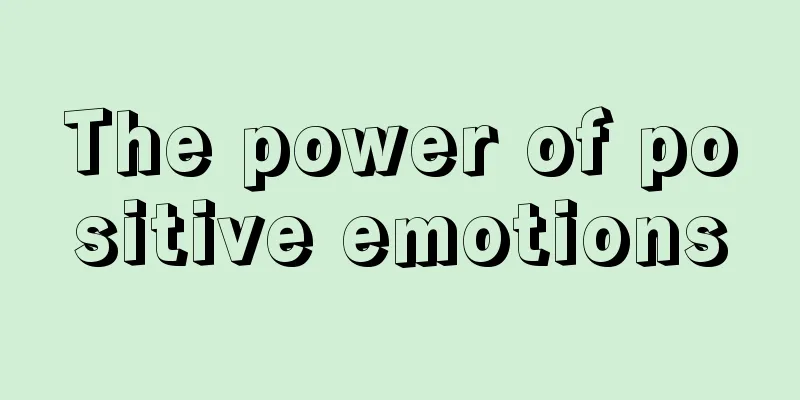What are the taboos after practicing Qigong?

|
In modern society, with the improvement of people's living standards, everyone pays more and more attention to health preservation. At present, there are many methods of health preservation. Qigong health preservation is a very common phenomenon in life. It can not only exercise the body, but also enhance the body's resistance and prevent some diseases. Although there are many benefits of practicing qigong, there are also some taboos. It is not as simple as everyone imagines. What are the taboos after practicing qigong? The essentials of practicing Qigong 1. Posture (1) Sitting cross-legged: double cross-legged, single cross-legged, and free cross-legged. The double-lotus position is to place the left foot on the right thigh, the right foot on the left thigh, and put the hands together in front of the lower abdomen. This sitting method is just to ensure stability and not shake, which is not easy to do without considerable skill. The single-leg cross-legged sitting position is with the left leg on top and the right leg on the bottom, with the postures the same as before. This is the way most people sit. (2) Sitting with legs drooping: Sit on a chair of appropriate height so that your thighs remain horizontal when you sit down. The calves are vertical, the feet are parallel to the ground, and both fists can be placed between the knees (with the knuckles facing each other). 2. Requirements for the five senses (1) Oral cavity: Close naturally, with the tip of the tongue rolled up 90 degrees and lightly touching the roof of the mouth. When the saliva secretion is too much, put down the tongue and swallow it slowly. This is called "swallowing saliva". (2) Eyes: Close your eyes and look inward. Focus on the part of your body that you have reached the required level. If your mind is wandering and your thoughts are flooding during practice, open your eyes and gaze at the void or the tip of your nose for a while to interrupt your thoughts, then close your eyes and sit again. This is called "cutting through tangled threads with a sword of wisdom." (3) Ears: Use your ears to pay attention to your breathing. Keep it calm and natural, without any rough sounds. (4) Breathing: Breathing is the key issue in the Qigong practice. During the following practice, you must pay attention to breathing naturally. Do not intentionally take deep breaths or breathe fast or slow. During the first, second, and third steps of opening up the Ren Meridian, always pay attention to exhaling, and let inhaling be natural without any adverse effects. Note: Do not breathe through your mouth. 3. Exercise Notes (1) Environment: To practice this exercise, you need to concentrate, so you need a quiet environment. But there is no need to overemphasize this issue, as long as there is no interference from others. (2) Do not force yourself to practice when you are extremely hungry, very full, very angry, or very frightened; do not practice during storms, thunderstorms, or lightning. Those who have mastered this skill do not follow this rule. (3) The movement of Qi cannot be forced; when Qi is full it will flow naturally. Forced guidance will easily lead to deviations. (4) Hallucinations and sensations: When practicing, various hallucinations and sensations may occur due to the activation of true Qi and the opening of meridians. Please do not be alarmed. Common symptoms include: big, small, light, heavy, cool, hot, itchy, and numb. When the above situation occurs, you should not be curious or pursue it, and you don't need to be afraid or worried. Things to note after practicing Qigong Do not squat to rest If you squat down to rest immediately after exercise, it will hinder blood return to your lower limbs. Affects blood circulation and aggravates body fatigue. In severe cases, gravity shock may occur. Therefore, after each exercise, you should adjust your breathing rhythm, walk and swing your arms, and do some relaxation and adjustment activities to promote the blood in the limbs to flow back to the heart, so as to pay off the "oxygen debt", speed up physical recovery and eliminate fatigue. Don’t eat right away During exercise, especially intense exercise, the motor nerve center is in a highly excited state. Under its influence, the parasympathetic nervous system that manages the activities of internal organs strengthens the inhibition of digestive system activities. At the same time, during exercise, blood throughout the body is redistributed and supplied more concentratedly to the needs of the motor organs, while the supply to the organs in the abdominal cavity is relatively reduced. The above factors weaken the motility of the gastrointestinal tract and greatly reduce the secretion of various digestive glands. It takes 20-30 minutes after exercise to recover. If you eat in a hurry, it will increase the burden on the digestive organs, cause functional disorders, and even cause various diseases. Do not drop body temperature suddenly During exercise, blood vessels on the body's surface dilate, body temperature rises, pores dilate, and perspiration increases. If you walk into an air-conditioned room or take a nap in the air vent immediately after exercise, or rinse your head with cold water to cool down, your skin will tighten and sweat will stop, causing physiological dysfunction such as temperature regulation, and a decrease in immune function, leading to colds, diarrhea, asthma and other symptoms. Avoid smoking Smoking after exercise will cause the air inhaled into the lungs to be mixed with a large amount of smoke. On the one hand, it will reduce the oxygen content, which is not conducive to paying off the "oxygen debt" and makes it difficult to eliminate body fatigue. On the other hand, when the human body inhales such foggy air, it will affect the gas exchange in the human alveoli, causing the human body to experience chest tightness, wheezing, difficulty breathing, dizziness, fatigue, etc. due to insufficient oxygen supply after exercise. Avoid "omit" relaxation activities Relaxing cool-down activities can not only make the athlete's cerebral cortex excitable and faster heartbeat and breathing rate return to the quiet state before exercise through appropriate relaxation exercises, walking, relaxing massage, breathing rhythm relaxation exercises, etc., but also help to restore muscle fatigue, reduce soreness and discomfort, and avoid dizziness, fatigue, nausea, vomiting, blurred vision and other adverse phenomena after exercise. Don’t be greedy for cold drinks After exercise, you will often sweat profusely. As a large amount of water is consumed, you will always feel dry mouth and urgent need to drink water after exercise. However, at this time, the human digestive system is still in a suppressed state and its function is low. Traditional Chinese medicine believes that if you drink a lot of cold drinks for the sake of cooling down, it can easily cause gastrointestinal cramps, abdominal pain, diarrhea, and induce gastrointestinal diseases. |
<<: Shouwu Tablets for the Treatment of White Spot Disease
>>: Chest tightness due to lack of sleep?
Recommend
What is the reason for a cold abdomen
According to traditional Chinese medicine, Dantia...
How to treat closed comedones
Acne is generally divided into open comedones and...
What is the reason for a bloated stomach and bitter mouth
Many people have experienced a bloated stomach an...
Is intestinal lymphoma hereditary?
This is a problem that many women of appropriate ...
Methods of scraping
The method of scraping is very particular. Scrapi...
How to eat carrots to treat constipation
Carrots are rich in vitamins and fiber, which are...
Why does anal contraction hurt?
The anus is a relatively important organ in our b...
Things to note about transient ischemic attack
There are many aspects of transient cerebral isch...
How to relieve tension
Many people feel nervous when they are taking exa...
There are white stripes on the body
In life, many people will find some growth lines ...
Prevent winter dryness: Eat more "acid" and less salt
The climate is relatively dry in many areas in wi...
How long can y sperm survive in a woman's body?
There are many women who want to get pregnant, an...
Method for sealing intravenous catheter
Intravenous catheters are widely used in clinical...
How should patients with glioma eat
Glioma is a malignant tumor of the brain. Current...
What are the remedies for unilateral chewing?
Chewing is a necessary action when people eat, be...









